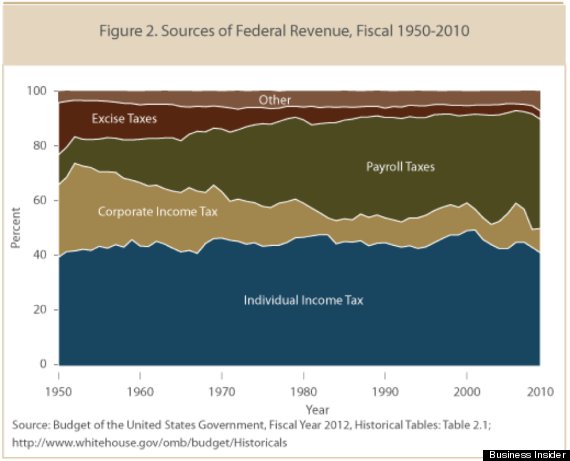This July 4th we can stop and ponder: was the American Revolution worth it? Here's what NPR had to say about the "American Dream," i.e. social and economic upward mobility:
So, in the 19th century in the U.S., there's unbelievable economic mobility. If your father, for example, was an unskilled laborer, sort of the lowest end of the working hierarchy, then you had an 80 percent chance of doing some more skilled, more highly paid job than your father. At the same time, in the U.K., you had about a 50 percent chance. Half the children of unskilled laborers were unskilled laborers themselves. But by just after World War II, the U.S. and U.K. are converging and the differences start to disappear. And by 1970, the U.K. has pulled ahead. So, by the 1970s, the children of unskilled laborers are more likely to do be doing something higher paying in the U.K. than in the U.S.
Why is that so? Why is the "American Dream" more alive in Britain today than in America? There are two basic theories, according to NPR:
- By the 20th century, the U.S. was a mature economy like Britain, without all the exceptional opportunities for growth that exist in a young, expanding nation.
- In early-mid 20th century, the welfare state and education in Britain grew at a faster pace.
These two theories are not mutually exclusive. I would also point out the respective rates of unionization in the U.S. and UK: 11.1 percent vs. 25.8 percent. The average in OECD countries for trade union density is 17 percent. Nordic socialist paradises Denmark, Finland, Norway and Sweden, which top almost every global indicator of economic and social well-being, have well over 50 percent of their workers in trade unions. In the U.S. we blame falling wages all on globalization, but then we should ask why wages aren't falling elsewhere in G-8 countries? Unions have a lot to do with it.
And then there is the U.S. tax system, which for the past 30 years has discriminated against wages in favor of income earned through interest and financial securities, thereby inflating inequality and crushing the "American Dream." Remember this chart?:

Paul Pirie for WaPo gives us more socio-economic data to ponder:
Most Americans work longer hours and have fewer paid vacations and benefits — including health care — than their counterparts in most advanced countries. Consider also that in the CIA World Factbook, the United States ranks 51st in life expectancy at birth. Working oneself into an early grave does not do much for one’s happiness quotient. This year the United States tied for 14th in “life satisfaction” on an annual quality-of-life study by the Organization for Economic Cooperation and Development. That puts the United States behind Canada (eighth) and Australia (12th). A report co-authored last year by the economist Jeffrey Sachs ranked the United States 10th in the world for happiness — again behind Canada and Australia. The Sachs study found that the United States has made “striking economic and technological progress over the past half century without gains in the self-reported happiness of the citizenry. Instead, uncertainties and anxieties are high, social and economic inequalities have widened considerably, social trust is in decline, and confidence in government is at an all-time low.”
But the difference is not just in economics or happiness, but also liberty. Pirie points out that the British Empire (including Canada) abolished slavery in 1833, a full 32 years befoe the U.S. ratification of the 13th Amendment to the Constitution. Today's slavery is the U.S. prison-industrial complex that incarcerates more adults, in both absolute and relative terms, than any other country by a wide margin, including Red China and Russia.
And speaking of Americans' liberty, I have three words for you: N-S-A. Do I really need to say more? It doesn't matter, the spooks are archiving this post anyway.
Today, having mentioned some of these factoids to a Brit, I joked about our reneging the Declaration of Independence. He said Britons are glad America is no longer their problem; they can't imagine trying to govern the U.S. I joked back, "Yeah, we have enough trouble dealing with places like Texas!" Can you imagine British PM David Cameron trying to talk sense to the folks in U.S. flyover country? You start to wonder who got the better end of the deal when the U.S. declared its independence....
Happy 4th of July, everybody! Have a hotdog and light off a roman candle for me.
No comments:
Post a Comment